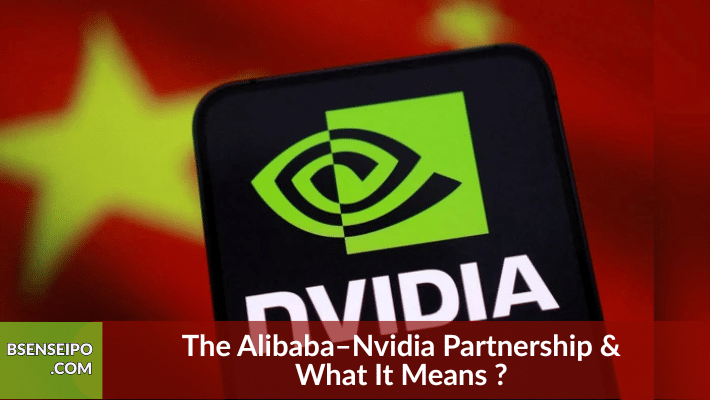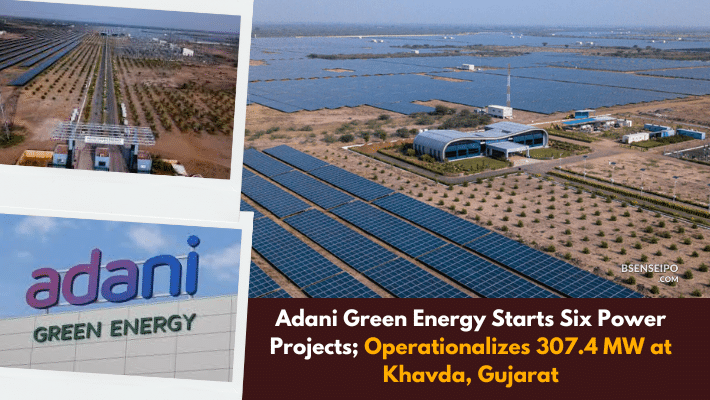Article: “Alibaba & Nvidia Join Forces: A New Chapter in AI Infrastructure & Cloud Supremacy”
In September 2025, Alibaba made headlines by announcing a strategic collaboration with Nvidia focused on “Physical AI”, combined with ambitious global data center expansion. The move marks a pivotal shift in Alibaba’s push to dominate not just e-commerce and cloud, but also AI development and hardware.
This article breaks down what this partnership entails, how Alibaba plans to scale infrastructure, how Alibaba and Nvidia compare in strengths and weaknesses, and what the future might hold for both.
The Alibaba–Nvidia Partnership & What It Means
What Is the Partnership About?
- Alibaba’s Cloud & AI arm will integrate Nvidia’s Physical AI software stack into its PAI (Platform for Artificial Intelligence) system. This stack spans synthetic data generation, simulation, reinforcement learning, model validation, and deployment.
- Through this integration, Alibaba aims to offer a “one-stop environment” for developing embodied AI/robotics, autonomous systems, and intelligent agents.
- The collaboration is being positioned as a “milestone” in AI + hardware synergy, especially in domains where AI must interact with the physical world.
- Alibaba also plans to massively invest in AI infrastructure: a RMB 380 billion (≈ US$53 billion) three-year AI/cloud buildout is underway.
Why It’s Significant
- This is more than a “cloud alliance” — it is a move toward hardware + software integration in AI systems.
- It reduces friction for developers who otherwise must stitch together disparate tools: simulation software, compute platforms, inference engines, etc.
- In a geopolitical climate where export controls limit chip sales to China, partnerships like this may help bridge capability gaps or localize certain functions.
- The announcement triggered a strong positive market response: Alibaba shares jumped ~9%.
Data Center Expansion & Infrastructure Plans
Global Ambitions
- Alibaba revealed plans for overseas data center expansion, aiming to extend its infrastructure footprint to support global AI/enterprise users.
- Though Alibaba hasn’t disclosed whether Nvidia chips will power all new centers, the association suggests some portion of its expansion may rely on Nvidia’s compute offerings.
- The aim is to become more influential among international AI developers and enterprise customers by offering robust, global AI cloud infrastructure.
China’s Domestic Focus & Self-Reliance
- Meanwhile, China is concurrently pushing toward domestic AI chip development to reduce reliance on foreign hardware. Alibaba’s T-Head unit has introduced an AI accelerator called PPU, claimed to rival Nvidia’s H20.
- In a flagship project, China Unicom’s data center in Xining is powered primarily by Alibaba / domestic chips (≈ 72% share), focusing on high compute workloads.
- Alibaba’s chip is being marketed as interoperable with Nvidia’s software (so developers don’t have to completely retool).
Thus, Alibaba is pursuing a dual strategy: partner with Nvidia to leverage global tech, while simultaneously building in-house chips for local strength and resilience.
Alibaba vs Nvidia: Strengths, Weaknesses & Comparison
Here’s a side-by-side of how Alibaba and Nvidia stack up, especially in the AI/cloud/hardware domains:
| Dimension | Alibaba | Nvidia |
|---|---|---|
| Core Business & Legacy | E-commerce, cloud, digital services, payments, logistics. Strong foothold in China & emerging markets. | GPU / AI compute, data center, gaming, software stack (CUDA), deep expertise in hardware for ML. |
| Strengths | Massive scale in cloud, user base, data, ecosystems in China/Asia; ability to cross-subsidize; flexibility in local regulation | Leading in AI compute, developer ecosystem (CUDA), global brand, and hardware R&D depth. |
| AI / Hardware Capability | Has built AI chips (PPU) and integrates Nvidia’s stack; risk of export constraints; strong local support. | Leading edge in cutting-edge GPUs, but restricted access in some geographies due to export controls |
| Software / Ecosystem | Alibaba’s PAI + integration with cloud, full-stack services | Deep software/dev ecosystem (libraries, tools), strong partnerships with AI labs |
| Market Risks | Regulatory risk (China), dependency on hardware supply (if constrained), innovation catch-up | Geopolitical export controls, dependence on fabs & external partners, competition from local chip initiatives |
| Growth Opportunities | Expanding global cloud & AI reach; bridging hardware + software; leveraging localized innovation. | Expanding data center infrastructure; building AI factories; capturing global AI compute demand. |
Recent Developments & Moves to Watch
- Alibaba just launched Qwen3-Max, a large language model with over 1 trillion parameters, enhancing its AI product stack.
- Alibaba continues upping its AI spend and cloud investment — reinforcing its pivot toward infrastructure and “AI as core business.”
- Nvidia recently announced massive investments in AI infrastructure (notably its deal with OpenAI) — reinforcing its role as AI hardware backbone.
- Alibaba’s in-house PPU chip is claimed to be comparable to Nvidia’s H20 in certain benchmarks.
- China is spotlighting data centers powered by domestic chips as strategic for tech sovereignty.
Challenges & Risks Ahead
- Export Controls & Geopolitical Pressure: Nvidia’s advanced chips are constrained for Chinese entities. Any shift in U.S. policy could hamper Alibaba’s access.
- Chip Performance & Ecosystem: Even if Alibaba’s PPU matches benchmarks, building a robust software ecosystem is a steep challenge.
- Integration Complexity: Merging hardware, simulation, AI tools, and deployment across global infrastructure is nontrivial.
- Regulatory & Political Risk: In China, regulatory policies can quickly shift, impacting tech giants.
- Profitability & Capital Intensity: AI infrastructure is expensive. ROI must follow, or losses may mount.
Future Outlook & Strategic Scenarios
- Strong Hybrid Model
Alibaba continues to rely on Nvidia’s stack for global markets, while domestically, its PPU and chip ecosystem gain traction — creating resilience. - Full Chip Independence
Over time, Alibaba could push to reduce dependence on Nvidia entirely and migrate workloads to its own hardware stack, especially for Chinese clients. - Cloud & AI Supremacy Play
If Alibaba’s infrastructure, model capabilities (e.g. Qwen3), and hardware integration succeed, it might challenge global players in the cloud + AI domain. - Partnership Pivot or Conflict
The alliance with Nvidia might evolve — whether closer integration, equity stakes, or divergence, depending on geopolitical or market forces.
Conclusion
Alibaba’s announcement of a partnership with Nvidia and its aggressive data center expansion signal that the company is doubling down on AI infrastructure and hardware-software synergy. This is a strategic escalation in the battle for AI dominance, particularly between China-based powerhouses and globally entrenched hardware giants.
That said, the path ahead is laden with technical, geopolitical, and competitive challenges. The success of this collaboration and the execution of Alibaba’s chip ambitions will be a major bellwether for the next era of AI and cloud competition.




